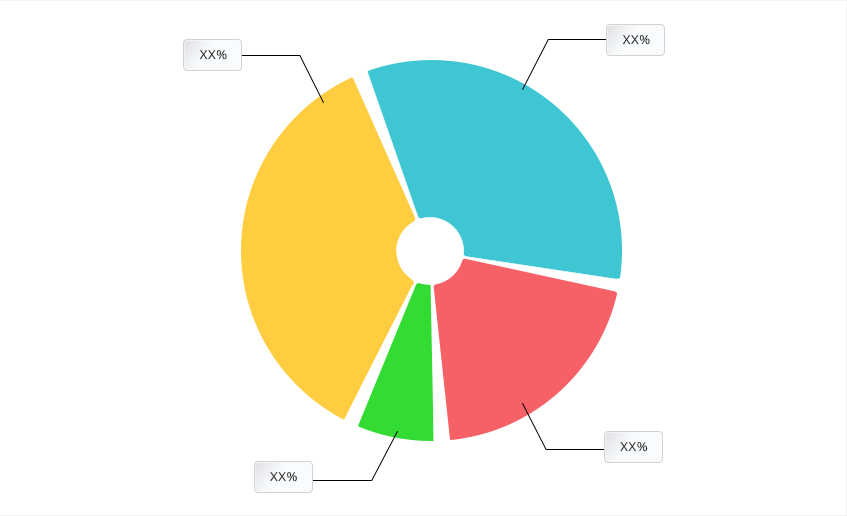Scope of the Study
The report covers a detailed examination of different by system type, by application, by end-user. The analysis majorly highlights the area of attraction in each region to understand the lucrative market spaces for investment. On the basis of region, the report analyzes the Direct digital control devices market trends across North America, Europe, Asia-Pacific, and LAMEA. The major countries discussed in the report involve the U.S., Canada, China, Japan, India, South Korea, Germany, the UK, Italy, France, Brazil, Saudi Arabia, and South Africa. Furthermore, the report provides quantitative study for the Direct digital control devices market from 2023 to 2032. The CAGR is calculated for 2024 to 2032, considering all the macro- and micro-economic factors, which impact the growth of the Direct digital control devices market.
Market Landscape
The study contains various parameters such as parent/peer market analysis, top player positioning in the base year, Porter’s five force analysis, value chain analysis, impact of government regulations on the market, and market dynamics (drivers, restraints, and opportunities), which directly or indirectly impact the growth of the market.
The Direct digital control devices market is segmented on the basis of by system type, by application, by end-user.
Direct digital control devices market Revenue ($Million), By type, 2024

Research Methodology
AMR provides its clients a detailed research and analysis on the basis of an array of factual inputs, which include interviews with industry participants, reliable statistics, and regional intelligence. Furthermore, the in-house industry experts play a vital role in developing analytic tools and models that are tailored to the requirements of an industry segment. These analytical tools and models filter the data & statistics and improve the accuracy of our recommendations and advice.
Regional Analysis
The Direct digital control devices market is studied across regions including North America, Europe, Asia-Pacific, and LAMEA. The major countries accounting for the growth of the market include:
-
North America: The U.S., Canada, and Mexico
-
Europe: Germany, the UK, Italy, Spain, France, and rest of Europe
-
Asia-Pacific: India, China, Japan, South Korea, Australia, and rest of Asia-Pacific
-
LAMEA: Brazil, Saudi Arabia, South Africa, and rest of LAMEA
Key players identified in this report are Honeywell International Inc., Schneider Electric SE, ABB Ltd., Omron Corporation, Siemens AG, Johnson Controls Inc., Yokogawa Electric Corporation, Emerson Electric Co., Helvar Oy, Huvitz Co., Ltd.
Key Questions Answered in AMR’s Direct digital control devices market Report
The Direct digital control devices market analysis provides in-depth information regarding the major industry participants. Porter’s five forces analysis helps determine the potential of traders and dealers and the competitive scenario of the industry players for making strategy. Major countries have been portrayed on the basis of their individual revenue contribution to the regional market. The detailed report on the Direct digital control devices market presents major questions for the market players as well as new entrants to assist them for making strategic decisions.
-
How do you see the growth of the Direct digital control devices market in the next nine years?
-
What are the top winning strategies adopted by the leading players operating in the market?
-
Who are the targeted customers in the Direct digital control devices market?
-
Which are the major players in the Direct digital control devices market
Key Insights Of Direct digital control devices market Report
-
AMR helps examine the value chain of a particular market from participant’s perception.
-
The study includes Porter’s five forces analysis to understand the competitive scenario in the industry and role of each participant.
-
Market dynamics include drivers, restraints, and opportunities of the market. Drivers state the factors that increase the growth of the market; however, restraints are the elements that impede the market growth. Opportunities, on the other hand, are the factors that act as the promoters for the market. The report covers all these facts in the study.
-
The parent/peer market analysis assists with an understanding of the parent market, and estimate the share of the Direct digital control devices market in the parent market. In other cases, it showcases a comparative share analysis between Direct digital control devices market and its peer product/service.
Direct Digital Control Devices Market Report Highlights
| Aspects | Details |
| By System Type |
|
| By Application |
|
| By End-user |
|
| By Region |
|
| Key Market Players | Johnson Controls Inc., Helvar Oy, Honeywell International Inc., Siemens AG, Schneider Electric SE, Huvitz Co., Yokogawa Electric Corporation, Omron Corporation, ABB Ltd., Emerson Electric Co. |
Loading Table Of Content...



